Latino psychologist and iCubed scholar Oswaldo Moreno is on a mission to work with and for his community
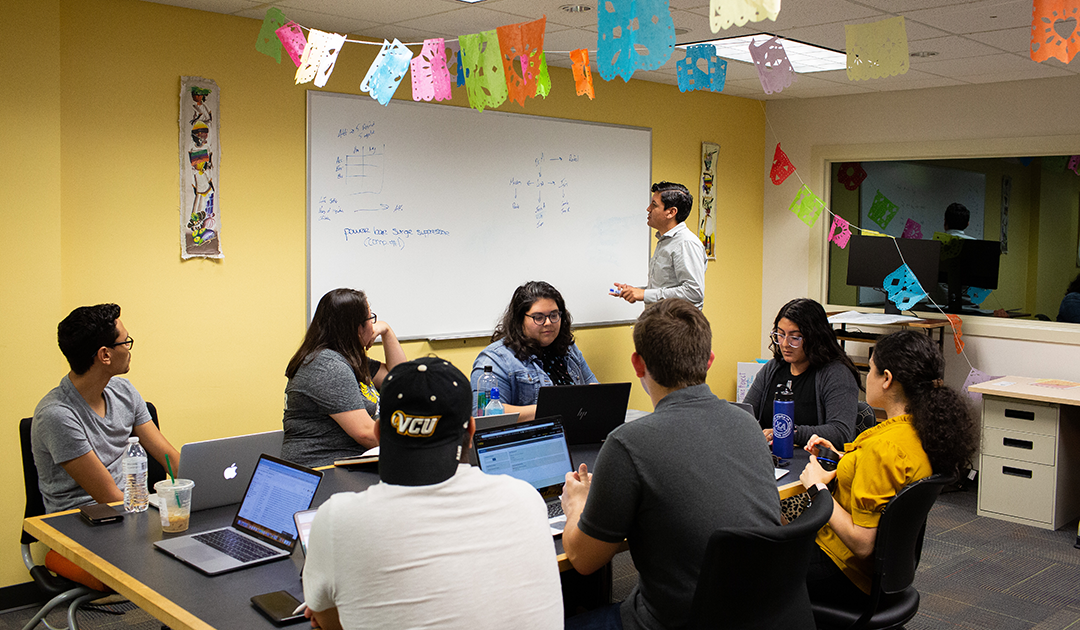
Staying true to his roots grounds Moreno as he works to improve Latine health equity.
Oswaldo Moreno, Ph.D., wants more than just a seat at the table; he wants to revolutionize the table, and all the systems that were built without minoritized and underrepresented people in mind.
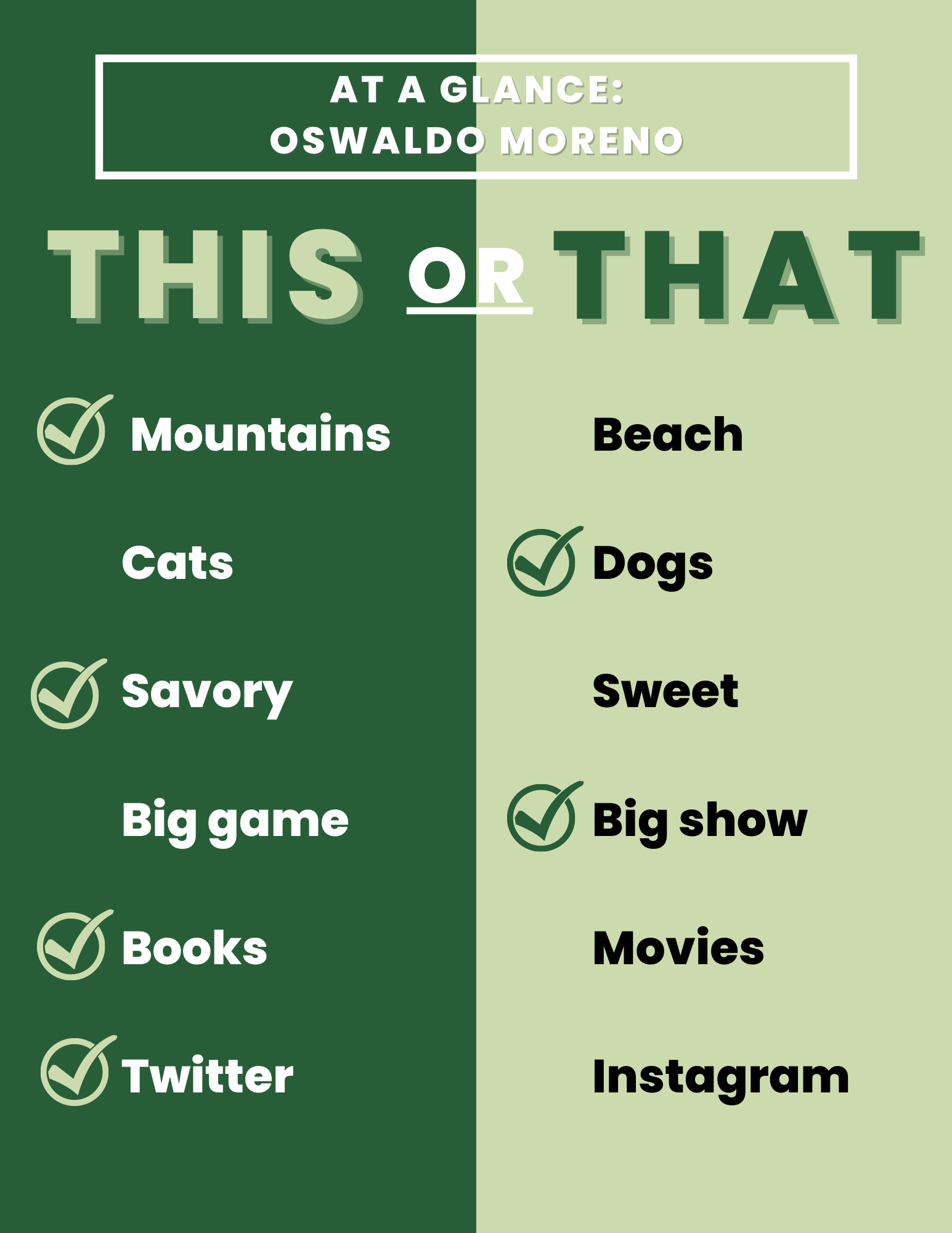
“Many times, change comes from the bottom,” said Moreno, a tenure-track assistant professor in the Virginia Commonwealth University Department of Psychology and an iCubed scholar in the Oral Health core. “A lot of the time, we expect change to come from the top, but the top may not always get it. The top at times is too comfortable continuing to fulfill the system in place.”
In order to combat that mindset, Moreno makes concerted efforts to center connections and intentionality throughout his work. He says it takes a lot of self awareness and self reflection to be a changemaker, and that it’s only possible by remaining deeply entrenched in your community.
“We are here sitting at the table, but we have to be careful that we just don’t acclimate or assimilate to be like the table,” he said. “No, we’re at the table, but we’re here to change the table.”
PAVING THE WAY
Dr. Moreno’s scholarship and activism center around Latine immigrant health, ethnic minority psychology, racial/ethnic healthcare disparities and culturally sensitive interventions. Before settling in Richmond, he was a postdoctoral research fellow at Brown University School of Public Health. At VCU, he’s able to apply the research he previously conducted.
“One of the things that attracted me to Virginia was seeing how Virginia is a new destination site for Latine immigrant communities,” Moreno said. He adds that when populations grow exponentially in cities like Richmond, social and healthcare services lag behind, unable to meet the new demands.
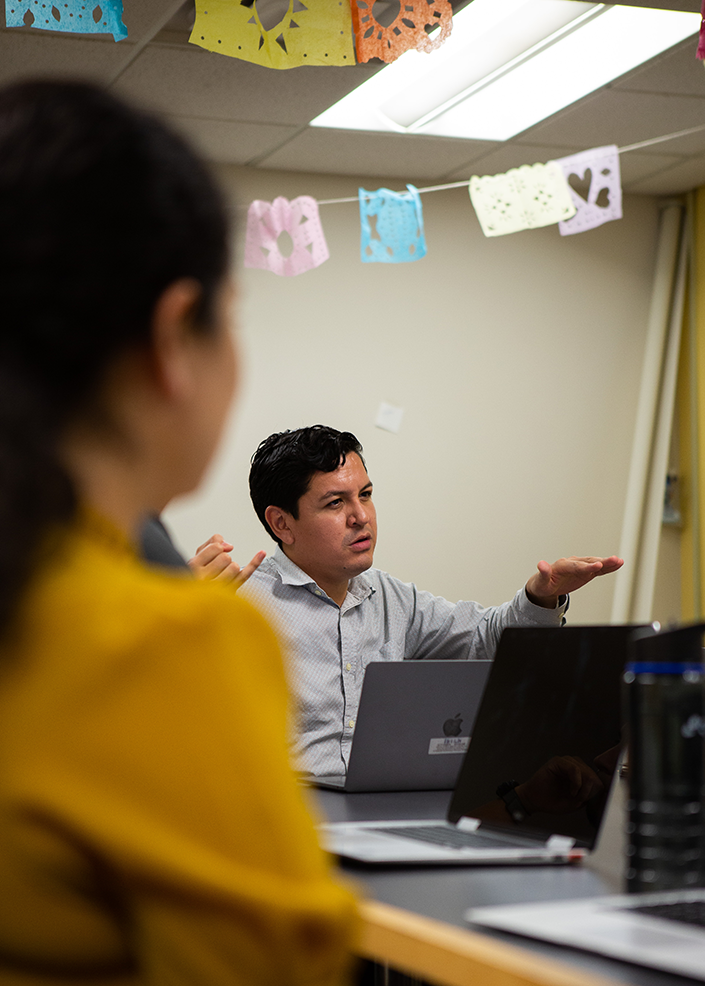
Many of Moreno’s efforts focus on bridging the gap between community needs and available services, particularly for Latine immigrants who may already struggle to access and navigate those services. Some of his efforts include co-directing La Clinica de Salud Mental and the Multicultural Clinic at VCU. Additionally, Moreno is a faculty affiliate with the Latinx Immigrant Health Alliance, a group of Latine scholars from various universities working to improve immigrant mental health and inform effective policy, and providing education on minority mental health and how to be a culturally humble provider and advocate.
Moreno deeply understands the struggle of navigating systems that weren’t designed for people like him. No one in his family has ever attended college, so he didn’t know what undergrad–let alone graduate school–even looked like or if it would be the right fit for him. As a university faculty member, he’s aware that his path here was difficult, and he intends to make that path easier for those following him. In particularly arduous times throughout his academic year, Moreno heavily credits his many mentors for helping to guide him.
“You should always have mentors,” he said. “I am here because I’m the fruit of my mentors. I would not be here, even in a faculty position, without them.”
LA ESPERANZA RESEARCH
One of Moreno’s life passions is helping others to succeed. He lives by a Toni Morrison quote that reads, “I tell my students, ‘When you get these jobs that you have been so brilliantly trained for, just remember that your real job is that if you are free, you need to free somebody else. If you have some power, then your job is to empower somebody else.’”
Guided by this sentiment, Moreno takes every opportunity to empower others, including by providing mentorship through La Esperanza (Spanish for “hope”), a research program that he founded in 2017. La Esperanza works with student scholars to understand health disparities in the United States and to explore the effects of early immigration/anti-immigration sentiments and policies on the psychological well-being of first-generation Latine immigrants.
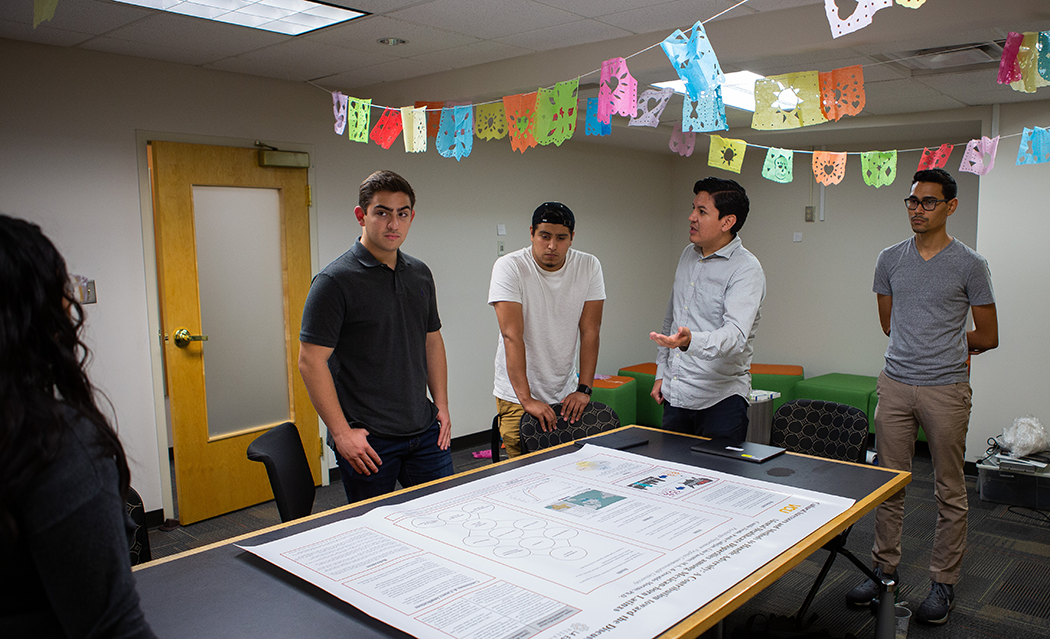
La Esperanza has provided mentorship to over two dozen first-generation Latine research assistants, many of whom are now in graduate or Ph.D. programs throughout the nation. Currently, Moreno mentors five Latine Ph.D. students and seven undergraduate students, including research assistants, iCubed Commonwealth Scholars and VCU Honors College students. Most students remain under his mentorship for years, eventually transitioning from student to colleague.
“I wanted to work with him,” said Camila Tirado, a first-year Latina Ph.D. student. “He was like, the first person to address what imposter syndrome is, and how that looks in our community in these spaces. That was something that was really huge for me, and it helped me become more comfortable in learning how to be more authentic in these spaces because it can be really difficult. But being part of the lab is a safe space for me. Just getting to grow in so many ways has been awesome.”
I aim to use my voice to speak for those voices that at times were speaking but were not being heard.
Dr. Oswaldo Moreno
Moreno’s other mentees share similar sentiments of him fostering a culture of authenticity, honesty and trust that helps them show up as their truest selves. Their mentorship experiences have also allowed them to foster closer relationships with one another, building what Isis Garcia-Rodriguez, a third-year Latina Ph.D. student, refers to as “a brother and sisterhood.”
“I definitely wanted to find a mentor who has similar life experiences as me and a similar worldview. I’m very fortunate to have a mentor who is Latino…I know within higher ed that’s pretty hard to come by,” said Geovani Muñoz, a second-year Latino Ph.D. student in the counseling program. “I think Dr. Moreno has done a really good job of kind of building like, a little family. And that’s important to me, especially being across the country from my folks and my community.”
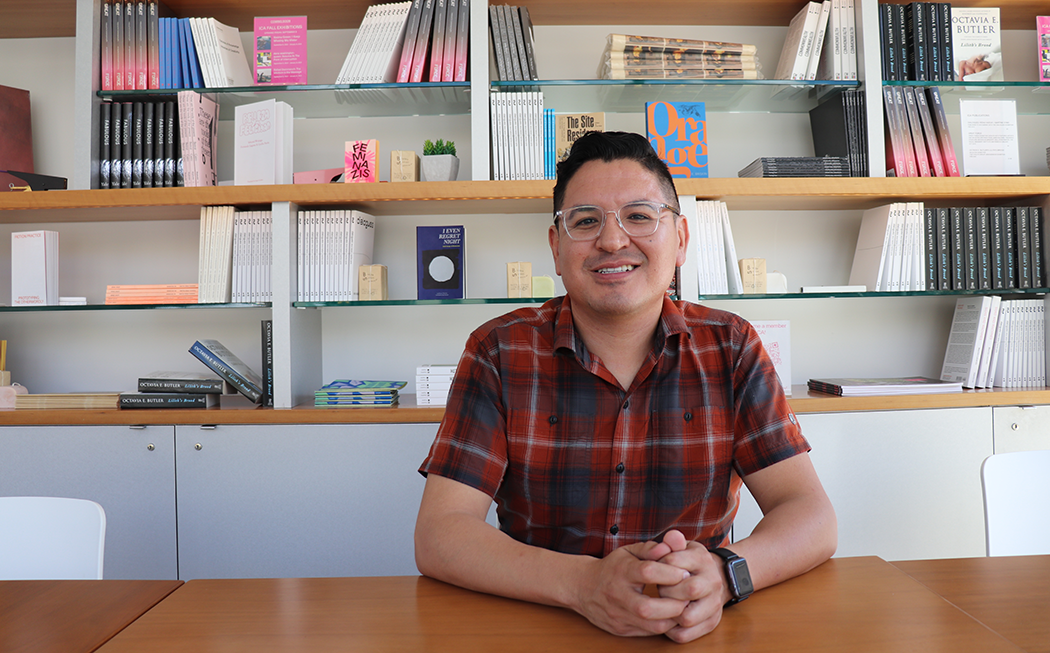
“I DON’T CONSIDER IT WORK. I CONSIDER IT LIFE.”
Terms like “work” and “measures of academic impact” don’t resonate with Moreno. They’re academic words that don’t accurately reflect the passion that fuels his community-engaged mindset.
“I don’t consider it academic work. I consider it life,” Moreno said when asked what motivates him to continue doing what he does day after day. “The reason why I don’t consider it academic work is because with work you come in, you clock in and you check out. No, it doesn’t work that way.”
“You wake up to your values, to your passions. I don’t consider this to be my ‘work,’” he said. “This is our community, these are our people. And so I use my platform to be able to be a voice for our communities. And so if a voice at a time was silenced in a generation, for example, like my parents’, I aim to use my voice to speak for those voices that at times were speaking but were not being heard. So I wouldn’t say it’s work but rather, this is my life, my value, my lifestyle, my belief system, my passion, my culture, my communities. And so because of that, that is what I wake up to.”
Editor’s Note: Diversity Drives Excellence Profiles introduce you to some of the diverse faculty and staff members whose work makes VCU such an uncommon and amazing university. The Office of Institutional Equity, Effectiveness and Success (IES) publishes the profiles on its blog and promotes them across its social media channels. Please send questions or comments about this series to ies@vcu.edu.
Categories Diversity, iCubed